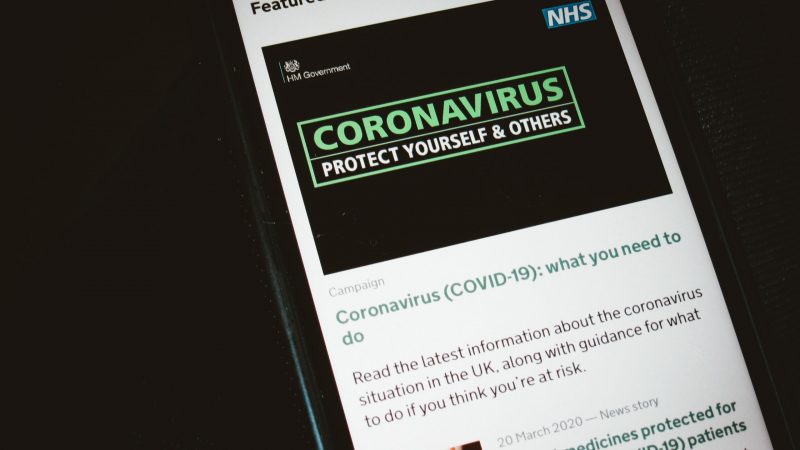
We were promised a world-beating test and trace system with a shiny new app by June. Instead last night, in the government’s latest screeching U-turn, the Matt Hancock app was unceremoniously junked.
This app once a central part of the government’s response to the pandemic. Digital technology and smartphones were to be our saviour. Hancock initially said that the app would be rolled out nationally in mid-May. When asked repeatedly about the delay, the government had insisted that the launch was only a few weeks away.
Technology expert after technology expert warned the government that its approach was flawed and would lead to failure. Months ago, other countries realised the same and moved to models based on technology provided by Apple and Google.
Given that one in five 65-year-olds and over don’t own a smartphone and with evidence that only around 50% of pensioners, unemployed and those in low-paid jobs were likely to download the app according to surveys, I have always been deeply concerned that a digital approach was likely to exacerbate existing health inequalities.
This U-turn is unsurprising. And it is yet another example of where the government’s response has been slow and badly managed. It’s something I called for back in May, when I wrote to the Health Secretary calling for the government to show greater flexibility in its approach to developing an app, including learning from technology companies. Other countries like Germany moved to this decentralised approach much earlier in April, and were able to launch their app this week with huge download rates and few privacy concerns.
For the UK, though, this late change has wasted precious time. Ministers need to tell us how much taxpayers’ money has been wasted on private firms throughout this sorry episode. It’s now likely to cause further delay to an app that is already way behind schedule.
The racing-loving Health Secretary tried to justify his latest shambles last night by saying he was always supportive of both developing an NHS app and supporting an Apple-Google alternative. He was always ‘backing both horses’, he insisted. Well, that is horses**t, to keep with the equestrian theme.
The real worry is the impact that this chaos will have on the public, and what it will mean for keeping our constituents and their loved ones safe. The government’s current approach is particularly concerning when you look at the statistics from the government’s contact tracing programme. Published yesterday, the latest figures show that a quarter of people who tested positive for coronavirus have not been contacted by NHS Test and Trace. There is a clearly a gaping hole in the system that urgently needs to be addressed.
These are not mere points of minor objection. So far we have seen over 64,000 excess deaths, over 16,000 deaths in care homes across the UK, and at least 300 health and care staff have lost their lives. Is it any wonder that people are deeply concerned about Boris Johnson pushing ahead with easing lockdown measures when the virus continues to circulate and infect people?
This is why I have continued to press for an effective test, trace and isolate strategy, led by local expertise to break the chains of transmission of this deadly virus. That means a concerted effort in areas we know are at risk of high levels of infection. Yesterday I called for routine testing of all staff in the NHS and social care sectors to help minimise transmission of Covid-19.
A fifth of coronavirus infections among hospital patients and almost nine in ten infections among healthcare workers may have been caught in hospital. But a recent study from Imperial suggested that weekly testing of healthcare workers is “estimated to reduce their contribution to transmission by 25-33%, on top of reductions achieved by self-isolation following symptoms”.
Regular testing of all NHS staff is now be an urgent priority. Weekly testing of all healthcare workers reduces the spread of the virus and helps protect NHS staff and patients. Eventually resetting the NHS to continue treating Covid and non-Covid patients is going to have to take priority. This should include putting in place infection control measures to make sure patients can continue to safely receive their care.
There is still a long way to go to defeat this virus. Saving lives and minimising harm will depend on ensuring the fundamentals of infectious disease control are in place. That means a resourced system to find cases, test them, track their contacts, isolate people with the proper financial support they need.




More from LabourList
‘Why solidarity with Ukraine still matters’
‘Ukraine is Europe’s frontier – and Labour must stay resolute in its defence’
Vast majority of Labour members back defence spending boost and NATO membership – poll